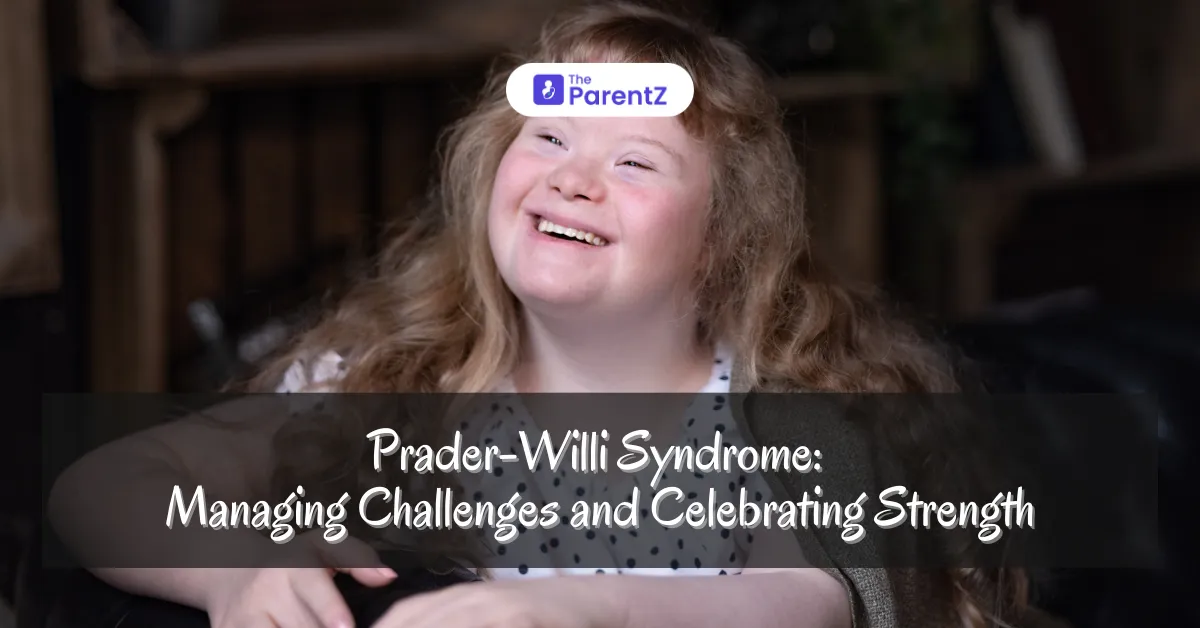Prader-Willi Syndrome (PWS) is a rare and complex genetic disorder that affects many aspects of development and health. Characterized by a chronic feeling of hunger, low muscle tone, and developmental delays, PWS requires careful management and support throughout life. Despite its challenges, individuals with PWS often lead fulfilling lives with the right interventions and a supportive environment.
What Is Prader-Willi Syndrome?
Prader-Willi Syndrome is a rare genetic disorder caused by abnormalities in chromosome 15. It affects approximately 1 in 10,000 to 30,000 people worldwide. PWS impacts multiple systems in the body, including growth, metabolism, and neurological development.
The hallmark feature of PWS is hyperphagia, an insatiable appetite that begins in early childhood and can lead to life-threatening obesity without careful intervention.
Symptoms of Prader-Willi Syndrome
The symptoms of PWS vary depending on age but typically include:
1. Infancy
• Low Muscle Tone (Hypotonia): Babies with PWS often have poor muscle tone, making it difficult to feed and gain weight.
• Delayed Development: They may take longer to achieve milestones like sitting, crawling, or walking.
2. Early Childhood
• Hyperphagia (Uncontrollable Hunger): By age 2-4, children with PWS develop an overwhelming drive to eat, often leading to rapid weight gain.
• Growth Hormone Deficiency: Short stature is common due to low growth hormone levels.
• Behavioral Issues: Temper tantrums, stubbornness, and difficulty adapting to change.
3. Adolescence and Adulthood
• Obesity and Related Health Issues: Without strict dietary control, obesity can lead to diabetes, heart disease, and other complications.
• Intellectual Disabilities: Most individuals with PWS have mild to moderate intellectual challenges.
• Hormonal Imbalances: Delayed puberty and infertility are common.
Causes of Prader-Willi Syndrome
Prader-Willi Syndrome occurs due to abnormalities in the 15q11-q13 region of chromosome 15. These abnormalities can include:
1. Paternal Deletion: A section of the father’s chromosome 15 is missing (most common cause).
2. Maternal Uniparental Disomy (UPD): Both copies of chromosome 15 are inherited from the mother, with none from the father.
3. Imprinting Defects: Errors in how the paternal genes are expressed.
These genetic disruptions affect the hypothalamus, a part of the brain responsible for regulating hunger, hormones, and emotions.
Challenges Faced by Families
Parenting a child with PWS requires addressing both physical and behavioral challenges.
1. Managing Hyperphagia
• Strictly controlling food intake is essential to prevent obesity. Families often need to lock pantries and refrigerators.
• Monitoring meal portions and ensuring a balanced, low-calorie diet becomes a daily responsibility.
2. Behavioral Management
• Children with PWS may exhibit stubbornness, anxiety, and difficulty handling transitions.
• Behavioral therapies and structured routines help manage these challenges.
3. Emotional and Financial Strain
• Caring for a child with PWS can be emotionally taxing, especially when dealing with food-related behaviors.
• Medical appointments, therapies, and specialized equipment can add financial stress.
Treatment and Management Strategies
While there is no cure for Prader-Willi Syndrome, early intervention and comprehensive care can significantly improve quality of life.
1. Growth Hormone Therapy
• Administering growth hormones helps improve height, muscle tone, and metabolism.
• Regular monitoring of hormone levels and bone density is necessary.
2. Nutritional Management
• A dietitian can design a personalized meal plan to balance nutrition while controlling calorie intake.
• Structured meal times and portion control are essential to managing hyperphagia.
3. Physical Activity
• Regular exercise helps maintain a healthy weight and improves muscle strength.
• Activities like swimming, walking, or adaptive sports are often recommended.
4. Behavioral and Psychological Support
• Behavioral therapies help address tantrums, anxiety, and obsessive-compulsive tendencies.
• Counseling can support both the child and family members in managing emotional stress.
A Parent’s Perspective: Finding Strength in the Journey
Families often describe the PWS journey as a mix of challenges and rewards. While the condition demands constant vigilance, it also brings unique lessons about patience, resilience, and unconditional love.
What Parents Say
• “The hardest part is watching my child struggle with hunger. But we’ve learned to celebrate the small victories.”
• “Structured routines have been a game-changer for our family. Predictability helps my child feel secure.”
• “Joining a PWS support group connected me with other families who truly understand what we’re going through.”
Research and Future Outlook
Advancements in genetics and neuroscience offer hope for better treatments:
• Appetite-Reducing Drugs: Medications targeting hunger-regulating pathways are in clinical trials.
• Gene Therapy: Research is exploring ways to correct the genetic defects causing PWS.
• Behavioral Interventions: Studies continue to refine therapies to improve social and cognitive outcomes.
Organizations like the Prader-Willi Syndrome Association (PWSA) actively fund research and advocate for awareness, offering resources to families worldwide.
A Note for Parents
Raising a child with Prader-Willi Syndrome is not easy, but it is a journey filled with moments of joy, growth, and love. Remember to:
• Seek support from local and global PWS organizations.
• Take care of your own mental and physical health; a strong parent is a strong advocate.
• Celebrate your child’s achievements, no matter how small they may seem.
You are not alone. Together, we can face the challenges of PWS and create a brighter, healthier future for our children.
References
• Prader-Willi Syndrome Association (USA): www.pwsausa.org
• Journal of Clinical Endocrinology & Metabolism: Insights into growth hormone therapy for PWS.
• ClinicalTrials.gov: Current research on PWS treatments.
Prader-Willi Syndrome is a journey that requires strength, compassion, and community. With the right care and support, individuals with PWS can lead meaningful, joyful lives.








Be the first one to comment on this story.